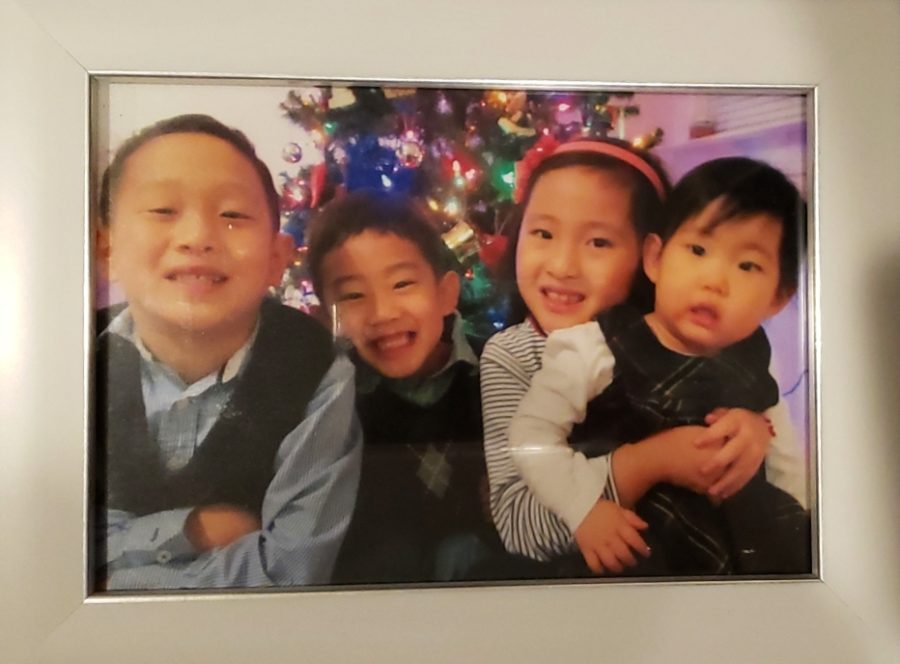Why You Should Care About Cousins
Cousins can make some of the best lifelong companions. In the picture above are my sister & I with our maternal cousins.
October 17, 2022
Cousins—their relationship with you might range from a long-lost sibling or best friend to a stranger you’ve never met. We all have them, whether we know it or not, dead or alive. However, the probability of you knowing—let alone meeting—your cousins depends on personal family circumstances and the amount of blood you share.
Culture also influences how well you know your cousins, as some place more importance on family than others. Most commonly, people tend to be familiar with their first cousins or those related through parents who are siblings. First cousins share an average of about 12.5% of their DNA and share a set of grandparents (23andme.com). If your family is close enough, you may see these cousins during holidays and other family gatherings. In fact, many people even live near or with their first cousins, growing up to be very close.
More than you might initially believe, cousins can play an integral part in one’s life. Similar to the way siblings do, they can act as another close family member and friend with whom you can share special laughs and memories with. The connection you share through blood helps a strong bond develop with more ease, as you tend to be more likely to share similarities and habits. In childhood, cousins also often make great playmates and caretakers. Even if you are an only child, a cousin can fill in the gap you might feel due to the lack of a sibling. Norah Li (12), a student who shares a close relationship with her own cousins, says that they have “added a lot to [her] life,” providing “[her with] a strong support system [that she] knows will always have [her[ back and be there for [her].” Furthermore, she adds that they’ve “just made [her] life a lot more fun since [she] knows [she’ll] have someone to hang out with no matter where [she goes].”
Often, the age range of cousins varies considerably, but most tend to be of around similar ages unless their parents share a large age gap. If the circumstances are right, sometimes cousins can even resemble the dynamic their parents once had as children, providing an amusing yet charming aspect to their relationship.
Personally, I am familiar with all five of my first cousins, and despite some of the trouble they have caused me, I am grateful to have been able to get to know them. On both sides of my family, they are all males ranging from the same age as myself to 8 years older, making me the only female grandchild besides my younger sister. Although outnumbered gender-wise and teased excessively, I still created many wild and fun memories with my cousins. I believe they have given me a valuable experience that would not have been possible without them. From playing Nintendo games together for hours to wrestling each other on cold cement floors to laughing uncontrollably in the dark at 4 AM during sleepovers to throwing sand in each other’s eyes, there was never a dull moment. Ultimately, I think of them as older brothers, and the oldest ones did play an influential part in my childhood by guiding and caring for me. While I had bouts of friendly antagonism and British accent battles with my cousins of similar age, the oldest ones kindly taught me how to build lego armies and designed fantasy RPG characters with me while waiting for food in restaurants. Additionally, I have also met and spent time with some of my second cousins, who I am also glad to have had the opportunity to meet.
Overall, I think that forming relationships with cousins can provide a lasting positive effect on one’s life. Cousins have the potential to become some of the best friends you have ever made and will be there for you through the ups and downs of life. Moreover, getting to know your cousins helps you get to know yourself better, as they are reflections of you in a sense. If you can help it and haven’t already, attempt to develop a bond with your own cousins—the potential for a lifelong companion is worth the try.






































